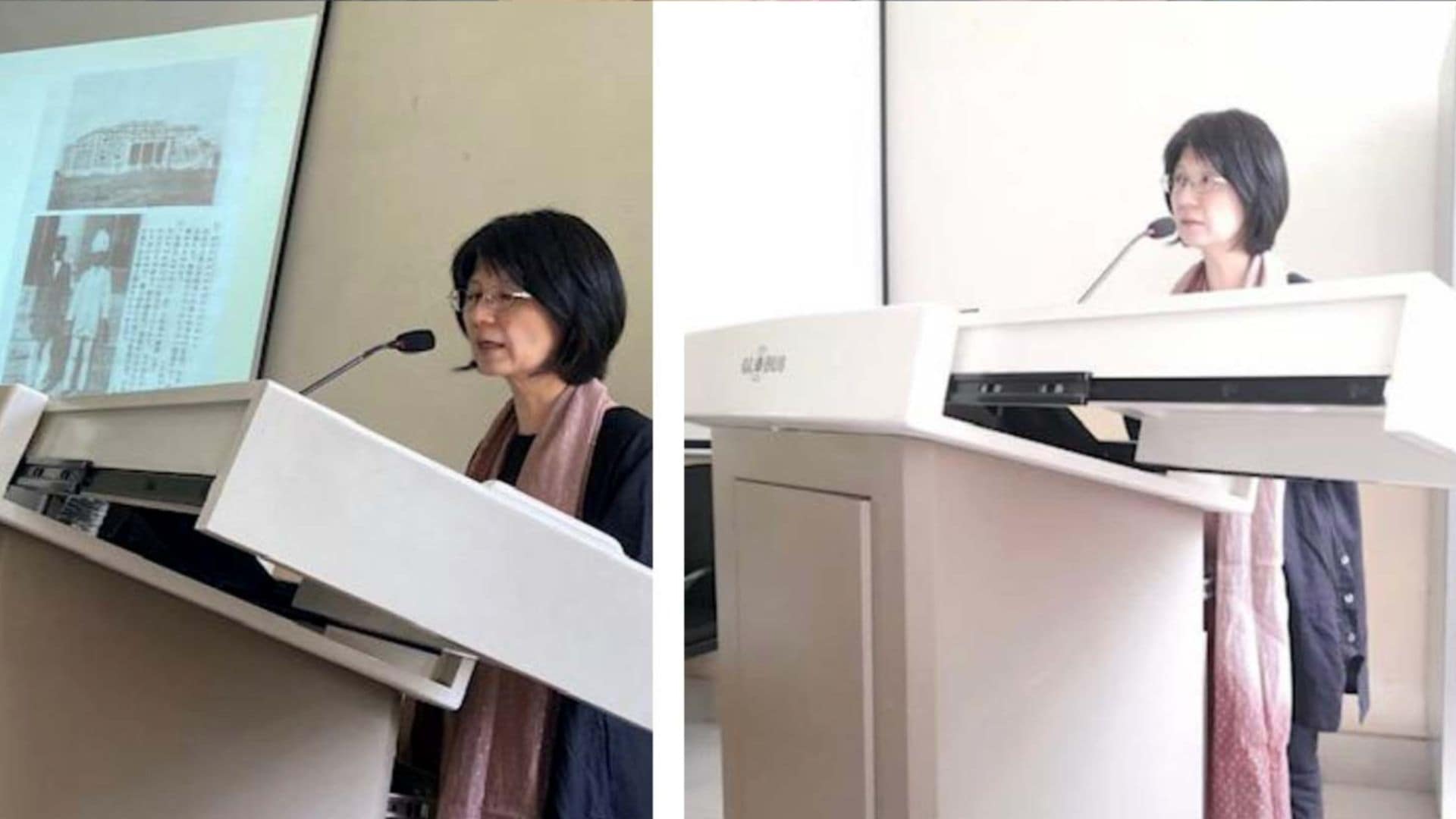Prof. Riho Isaka, Department of Area Studies at the Graduate School of Arts and Sciences, the University of Tokyo, Japan, delivered a lecture on “Japanese travellers and their food experiences in colonial India: Knowledge circulation in early twentieth-century Asia” at the Women’s College, Aligarh Muslim University, as part of the ongoing G20 celebrations at AMU.
With the help of a PowerPoint presentation, she explored the ways in which Japanese intellectuals travelled in colonial India in the early twentieth century, focusing on their food experiences. The primary sources she engaged with included the travelogues written by Japanese intellectuals during the 1920s and 30s. The talk examined how Japanese travellers acquired knowledge about what and where to eat in India and their different eating experiences during the journeys. It also looked closely at their descriptions of food, dining facilities, and their interaction with people in the localities through the act of eating, which deeply reflected the impact of colonialism. Their narratives also showed how these travellers understood the dietary practices of local societies by comparing them with their own and linking them to their knowledge of other social and cultural practices in India.
In his presidential remarks, Prof. Mirza Asmer Beg, Dean, Faculty of Social Sciences, emphasized the need to develop a critical framework through which G20 should be looked at focusing both on its merits and demerits.
Another speaker, Prof Shafey Kidwai of the Department of Mass Communication, AMU spoke about looking at issues of food and feasting within the domestic space, especially the kitchen, which reveals various dining practices and etiquettes.
Earlier, welcoming the guest speaker, Prof. Naima Khatoon, Principal, Women’s College shed light on the G20 forum and its relevance and highlighted the importance of the theme of G20, “Vasudhaiva Kutumbakam” or “One Earth, One Family, One Future”. She underscored how Prof. Isaka’s talk reflected this theme by signifying the supreme strength of unity in diversity.
Dr. Shivangini Tandon introduced Prof. Riho Isaka and briefly outlined the main features of the talk while Dr. Lucky Khan introduced the Chair, Prof. Mirza Asmer Beg
Dr. Bushra Husain proposed a vote of thanks and Amna Asim, a BA final year student of History conducted the programme.




